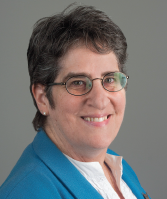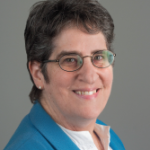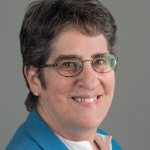 SAN DIEGO—In many ways, publications are the currency of academic medicine and research careers. Often, physician-scientists need guidance on how to ensure their work is featured in prominent journals and other venues. At the ACR Convergence 2023 session titled, The World is Your Oyster: Publishing Pearls from Editors, a panel of experts shed light on how to be successful in publishing and editing in the field of rheumatology and beyond.
SAN DIEGO—In many ways, publications are the currency of academic medicine and research careers. Often, physician-scientists need guidance on how to ensure their work is featured in prominent journals and other venues. At the ACR Convergence 2023 session titled, The World is Your Oyster: Publishing Pearls from Editors, a panel of experts shed light on how to be successful in publishing and editing in the field of rheumatology and beyond.

Dr. Hannan
Reach Out
Marian Hannan, DSc, MPH, professor of medicine at Harvard Medical School and senior scientist at the Marcus Institute for Aging Research, Boston, served as editor-in-chief of the journal Arthritis Care & Research for 10 years. In this role, Dr. Hannan found joy in working with authors to find a home for their articles—whether with Arthritis Care & Research or a different journal.
Dr. Hannan noted that authors can contact the editor of a journal about a submission, and most journals list editors’ contact information on their websites. It may be helpful to reach out because editors can advise an author on how a proposed article may be received by reviewers. If an article is not a good fit for a particular journal or if it’s proposed at the wrong time—such as when a similar article has already been accepted for publication—the editor may be able to advise the author on a more suitable publication.
As a rule, editors are looking for manuscripts that address important knowledge gaps, are informative to readers, are novel and honest with regard to strengths and limitations and will appeal to the journal’s readership. Know one’s audience was a key piece of advice during the panel discussion. Frequently, authors select a journal based on its impact, which may not be ideal. Dr. Hannan’s advice: Choose the journal or periodical that best aligns with your topic and will give you the timeliest review.
Authors may feel discouraged when they receive an immediate rejection of their work, but this does not necessarily mean the work is of low quality. It may be rejected due to its poor fit with the journal or because the journal has recently published a manuscript on the same topic.

Dr. Seo
Keep Working
Next, Philip Seo, MD, MHS, deputy editor of rheumatology for UpToDate and associate professor of medicine, Johns Hopkins University School of Medicine, Baltimore, expanded on this topic, discussing articles that have been difficult to get published. Dr. Seo advised authors not give up on these articles; rather, authors may need to re-conceptualize the paper and reorganize how the research is presented. Doing so may require more time and effort, but this can be worthwhile in ensuring the results of a research study ultimately reach readers.


